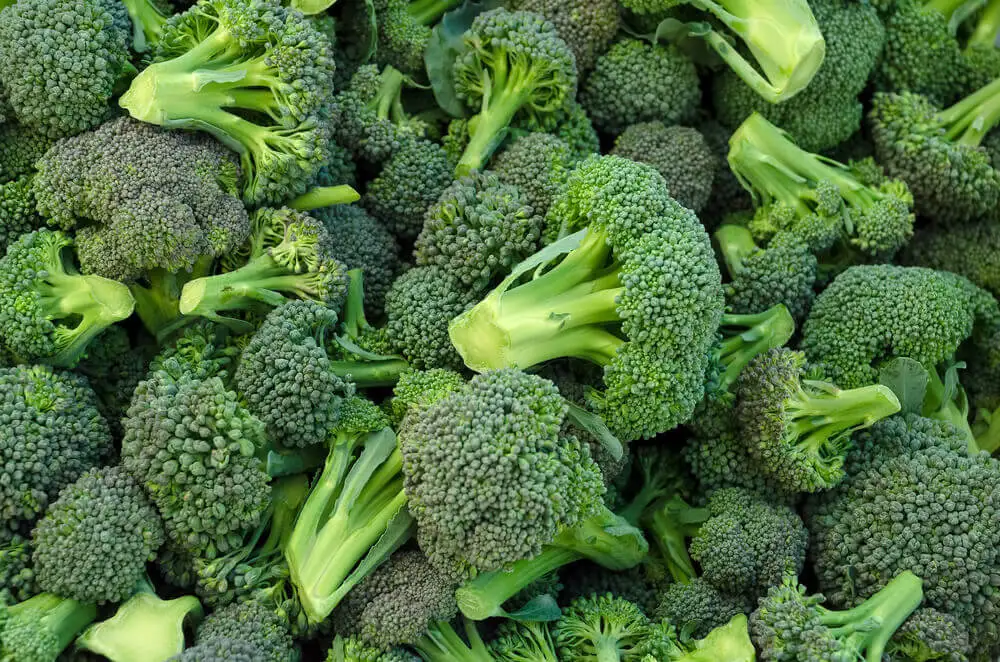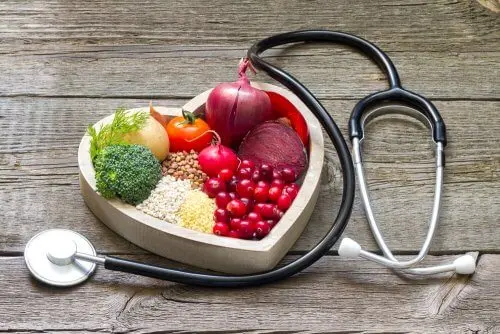Indole-3-Carbinol: Properties and Benefits


Written and verified by the nutritionist Anna Vilarrasa
Indole-3-carbinol is a compound present in cruciferous plants. A diet rich in these foods is considered a good way to prevent some types of cancer.
Although the specific mechanisms of action are gradually becoming known, many epidemiological studies carried out in recent decades associate the anticancer activity with this component: indole-3-carbinol.
What is indole-3-carbinol?
Fruit and vegetable are foods rich in fiber, vitamins, minerals, and water; all of them are necessary for the proper functioning of the body. But apart from this, a diet rich in vegetables provides us with a wide variety of other phytonutrients or nutrients derived from plants.
Many of them have been known in recent years and their presence in our diet is related to a large number of beneficial health properties. Some of the ones we have heard most about are the following:
- Lycopene
- Beta-carotene
- Lutein and zeaxanthin
- Sulforaphane
- Flavonoids
- Anthocyanidins
Discover more: Why it’s Important to Eat Fruit and Vegetables According to WHO
Glucosinolates are secondary flavonoid compounds that can only be synthesized by cruciferous plants. Vegetables such as the following belong to this genus:
- Broccoli
- Brussels sprouts
- Cauliflower
- Cabbage
- Mustard greens
- Kale cabbage
The function of these compounds is to protect plants against the possibility of being attacked by insects. Therefore, they are only degraded into other molecules when the plants suffer damage to their tissues. Then a chain reaction begins through which indole-3-carbinol appears.

Properties of indole-3-carbinol: protection against cancer
As we have seen, experts say that diets rich in vegetables such as broccoli or cabbage are associated with a lower risk of certain types of cancer. Likewise, most studies show that indole-3-carbinol is mainly responsible for this health-promoting action.
The following pathways of action have emerged from various animal and in vitro human cell research:
- Eliminates the proliferation of different cancer cell lines in breast, endometrial, prostate and colon tumors.
- It prevents certain chemicals from forming a spontaneous appearance of tumor cells in the breast, cervix, gastrointestinal tract, liver, and lung.
- Stimulation of apoptosis or cell death has been observed in tumor cells treated with indole-3-carbinol.
- It modulates estrogen metabolism, which could decrease the incidence of hormone-dependent cancers.
Discover more: New Cancer Treatment? Photoimmunotherapy Successfully Eliminates Malignant Cells
Other activities and benefits of indole-3-carbinol
Although much of the research related to indole 3 carbinol aims to discover its relationship with cancer, this component has other properties that we can’t fail to take into account.
Antioxidant
Cruciferous plants have shown antioxidant activity as they’re rich in components capable of neutralizing free radicals. These are molecules that, in an uncontrolled way, can end up being harmful to our cells.
Thus, thanks to their antioxidant action, these vegetables can help us to prevent the onset of strokes and neurodegenerative diseases, among others.
Cardiovascular protector
This action is due not only to the presence of indole-3-carbinol but also to sulforaphane. These protect against ischemic damage to the heart, are anti-inflammatory, regulate blood cholesterol and could reduce mortality rates related to cardiovascular disease.

Anti-inflammatory
Indole-3-carbinol has an excellent anti-inflammatory effect. This could open the door to its use as a treatment in some inflammatory diseases and as a prevention of the negative effects that continued inflammation can cause in our bodies.
Consumption and safety recommendations
Indole-3-carbinol has been shown to be a safe component when food sources are used. A daily consumption in prudent quantities of plants of the Brassica family such as broccoli, kale, or Brussels sprouts shouldn’t cause contraindications apart from the gas and digestion problems that some people may experience.
Regarding indole-3-carbinol supplements, they’re also safe if the recommended doses are respected. However, in some animal studies, abnormalities such as fertility problems in males and stimulating properties of certain tumors were observed under specific conditions.
This is why it’s recommended to consult a doctor or specialist before starting to take any supplements. In addition, it isn’t recommended in pregnancy, lactation, and in people who are already undergoing cancer treatment.
Indole-3-carbinol is a good ally for our health
Indole-3-carbinol is a phytochemical derived from glucosinolates, present in some vegetables such as cauliflower, cabbage, or Brussels sprouts. Several of its beneficial actions for human health have been studied, among which the prevention against some types of cancer, cardiovascular or inflammatory diseases stand out.
Although it can be found in supplement form, it’s advisable to add cruciferous vegetables to our daily diet in order to take advantage of the nutritional richness of these compounds in their entirety.
All cited sources were thoroughly reviewed by our team to ensure their quality, reliability, currency, and validity. The bibliography of this article was considered reliable and of academic or scientific accuracy.
- Auborn K et al. Indole-3-carbinol Is a Negative Regulator of Estrogen. Journal of Nutrition. Julio 2003. 133(7 Suppl):2470S-2475S.
- Jing-Ru W, et al. Indole-3-carbinol as a chemopreventive and anti-cancer agent. Cancer Lett. Abril 2008. 18;262(2):153.
- Jun J, et al. Indole-3-carbinol inhibits LPS-induced inflammatory response by blocking TRIF-dependent signaling pathway in macrophages. Food and Chemical Toxicology. Julio 2013. Pp 256-261
- Katz E, et al. Indole-3-carbinol: a plant hormone combatting cancer. Journal List. Junio 2018.
- Kwang Kim J, Sang Un P. Current results on the biological and pharmacological activities of Indole-3-carbinol. Experimental and Clinical Sciences Journal. 2018.17:181-185.
- Licznerska B, Baer-Dubowska W. Indole-3-Carbinol and Its Role in Chronic Diseases. Advances in Experimental Medicine and Biology. 2016;928:131-154.
This text is provided for informational purposes only and does not replace consultation with a professional. If in doubt, consult your specialist.








